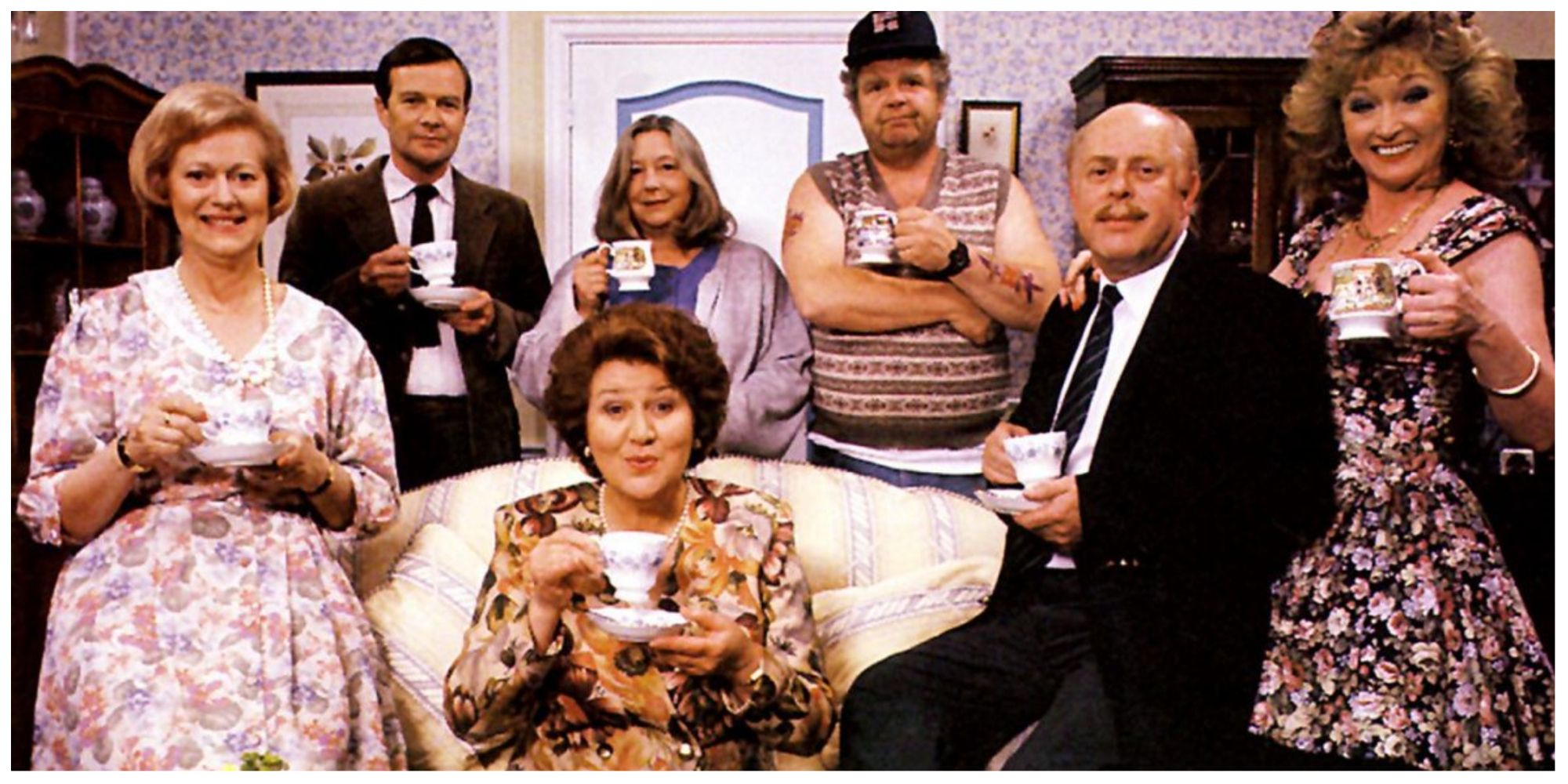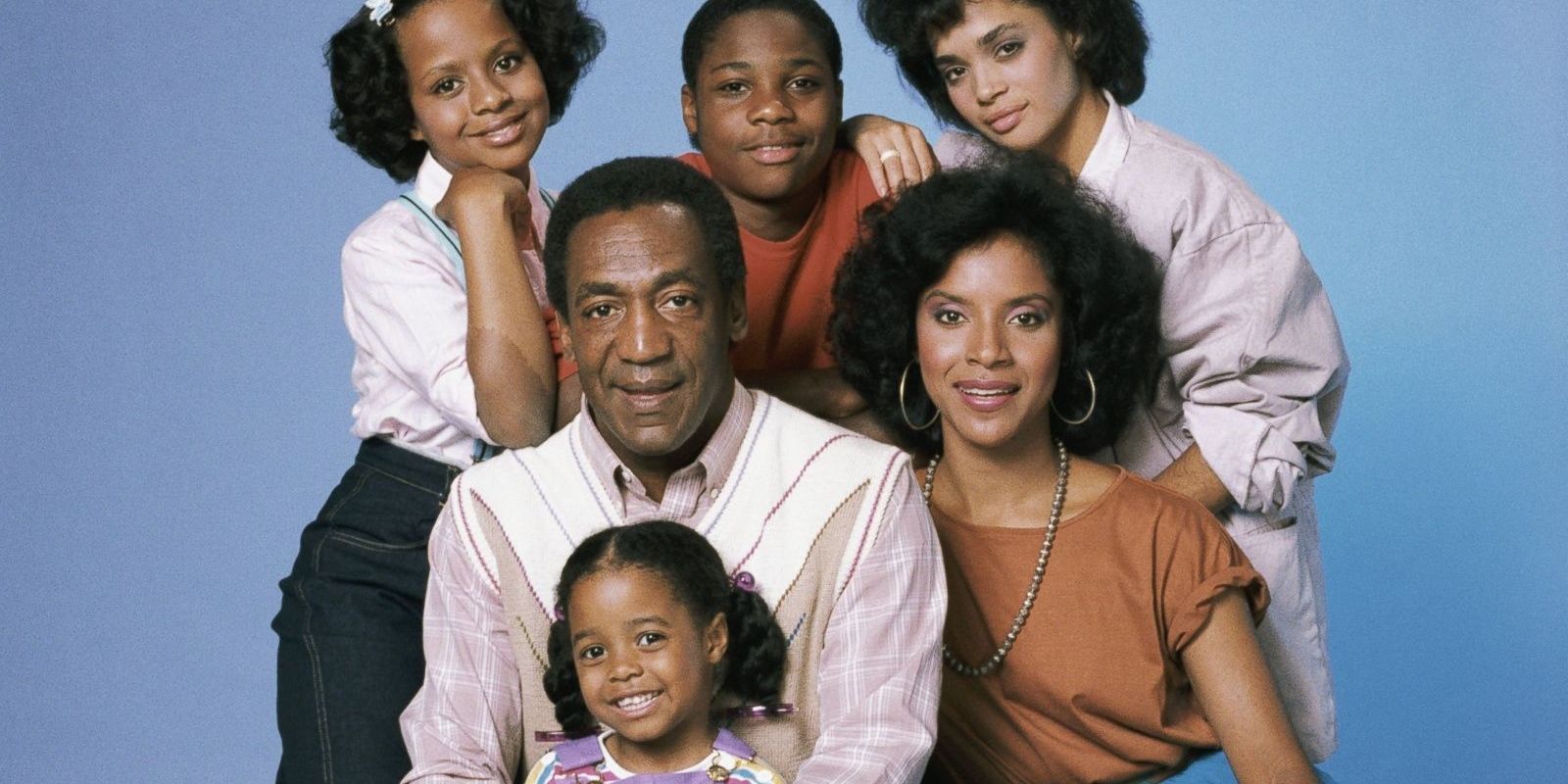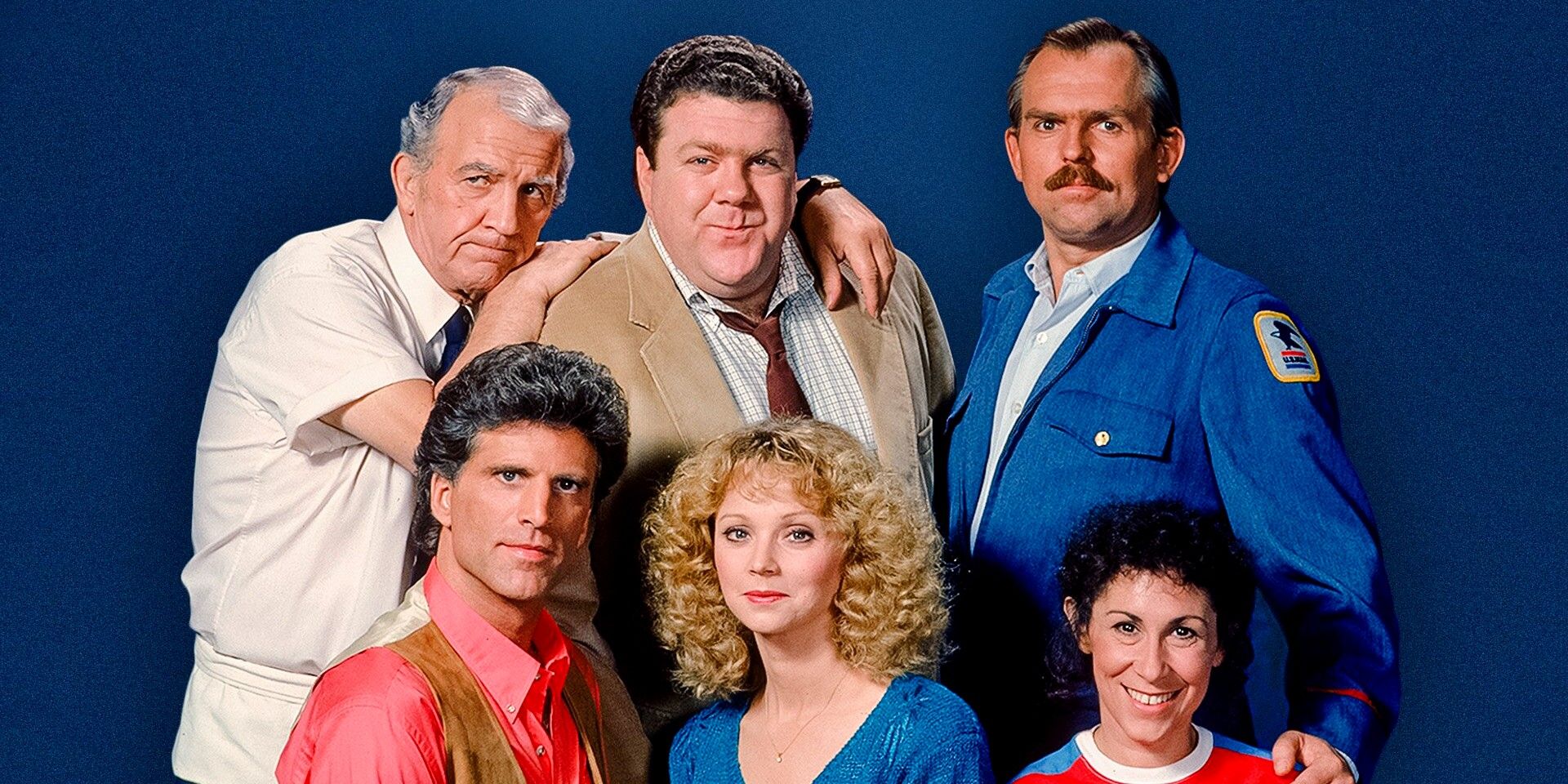Relive The Laughter: Why 1980s Sitcoms Still Reign Supreme
Venturing into the realm of sitcom genius that awakened in the 1980s drenches the memory in a shower of laughter, heartwarming stories, and impactful characters. This era, an undeniable golden age of television comedy, gave birth to an array of '80s sitcoms that brought forth a new wave of engaging narratives and humor. From groundbreaking formats to beloved ensemble casts, the sitcoms of the 1980s didn't just entertain; they shaped cultural conversations and set new benchmarks for television comedy.
Indeed, the 1980s introduced some of the most timeless sitcoms that continue to be influential today, from the sharp wit of *The Golden Girls* to the relatable family dynamics of *Roseanne*. Network television in the 1980s was fantastic, and sitcoms in particular were thriving, carving out a unique space in a decade increasingly defined by dramatic storytelling. This article will delve into what made these shows so special, their lasting impact, and why they remain cherished by generations of viewers.
Table of Contents
- The Golden Age of Laughter: Why 1980s Sitcoms Endured
- Beyond Family: Redefining Sitcom Norms
- Iconic Families and Heartwarming Narratives
- The Rise of the Working Woman and Modern Households
- Cultural Reflections: Style, Trends, and Social Commentary
- The Legacy and Lasting Influence of '80s Sitcoms
- A Decade of Diversity: The Breadth of '80s Sitcoms
- Beyond the Laugh Track: The Enduring Appeal
The Golden Age of Laughter: Why 1980s Sitcoms Endured
The 1980s often evokes images of neon lights, big hair, and a distinct cultural shift. In the world of television, it was a decade of intense competition and groundbreaking innovation. While the sitcom dominated TV in the ‘70s, in the 1980s, it faced tough competition for critics’ attention from groundbreaking dramas like *Hill Street Blues*, *Miami Vice*, and *St. Elsewhere*. These dramas pushed boundaries with their gritty realism and complex narratives, forcing sitcoms to evolve and find new ways to captivate audiences.
Despite this formidable competition, sitcoms not only survived but thrived. The ‘80s was definitely a time to be alive, mostly because it had some of the best television we’ve ever seen. The success of sitcoms during this period wasn't just about escapism; it was about creating relatable characters and scenarios that resonated deeply with viewers. Shows like *M*A*S*H*, which continued its successful run three years into the ‘80s, demonstrated the enduring power of character-driven comedy. The 1980s were an unforgettable decade in American television, marked by an abundance of hits across all genres, and sitcoms were at the forefront of this entertainment boom.
Beyond Family: Redefining Sitcom Norms
For decades, the traditional family unit had been the bedrock of sitcoms. From *Leave It to Beaver* to *The Brady Bunch*, the nuclear family was the central focus. However, the 1980s saw a significant departure from this norm, introducing formats that explored different kinds of relationships and living arrangements. This shift broadened the scope of comedic storytelling and allowed for more diverse character development. The idea that friends can be just as important as family, helping one another through life's ups and downs, became a central theme in some of the decade's most beloved shows.
Cheers: The Bar Where Everybody Knows Your Name
While the 1980s featured many popular sitcoms, *Cheers* is probably at the top of the heap in terms of its impact on American popular culture. Unlike most TV sitcoms, it doesn't involve a family in the conventional sense. Instead, it centered around a group of regulars at a Boston bar, creating a "chosen family" dynamic that was revolutionary for its time. The most famous sitcom of the 1980s, *Cheers* also commonly appears on many TV viewers’ lists of the greatest TV shows of all time.
- What Can Be Unburdened By What Has Been Origin
- Strawberrytabby Nude
- Xfollow Video
- Mary Cosby
- Megnut Leak
Set at a middling Boston sports bar, *Cheers* introduced a fundamental new change in the way most people thought of conventional sitcoms. Its strength lay in its witty dialogue, memorable characters, and the comfortable, familiar atmosphere of the bar itself. Each character, from the wise-cracking bartender Sam Malone to the intellectual Diane Chambers and later the quirky Rebecca Howe, brought a unique flavor to the ensemble. The show's ability to blend humor with genuine human connection, exploring themes of friendship, love, and life's everyday struggles, cemented its place as a cultural phenomenon. Its success proved that a show didn't need a traditional family structure to be universally appealing and deeply resonant.
Iconic Families and Heartwarming Narratives
While some sitcoms broke away from the family mold, many others redefined it, presenting new takes on household dynamics and generational relationships. Shows like *Family Ties* and *Full House* became household names, showcasing families navigating the complexities of the decade. These shows often balanced humor with earnest storytelling, tackling social issues relevant to the time while maintaining a heartwarming core. They provided comfort and familiarity, becoming a staple of evening viewing for millions.
The Golden Girls: Wisdom, Wit, and Unforgettable Friendships
Among the most beloved and enduring of these family-centric (or quasi-family) sitcoms is *The Golden Girls*. This show broke new ground by focusing on four older women living together in Miami: Dorothy, Rose, Blanche, and Sophia. It challenged ageist stereotypes and celebrated the wisdom, humor, and enduring friendships of women in their golden years. The show was a masterclass in comedic timing and character development, with each woman possessing a distinct personality that contributed to the group's hilarious and often poignant interactions.
From Rose Nylund's quirky "St. Olaf stories" to the sharp-witted retorts of Dorothy Zbornak and the saucy charm of Blanche Devereaux, topped off by Sophia Petrillo's no-nonsense wisdom, *The Golden Girls* resonated with audiences of all ages. It demonstrated that compelling and hilarious stories could be told from the perspective of older characters, proving that wit and vibrancy are not exclusive to youth. The show tackled serious topics like aging, sexuality, and discrimination with grace and humor, making it far more than just a comedy; it was a cultural touchstone that remains relevant today.
The Rise of the Working Woman and Modern Households
The 1980s was a decade of significant social change, including the increasing presence of women in the workforce and evolving gender roles within households. Sitcoms of the era began to reflect these changes, showcasing independent female characters and challenging traditional domestic arrangements. This allowed for fresh comedic situations and offered viewers a glimpse into more diverse family structures.
Who's the Boss?: Flipping Traditional Roles
A prime example of a show that embraced these evolving dynamics was *Who's the Boss?*. This popular sitcom cleverly inverted traditional gender roles, providing a unique premise for comedy and character development. The show's central premise revolved around Tony Micelli, a retired baseball player, who becomes the housekeeper of Angela Bower, an advertising executive in New York.
The series explored the humorous and sometimes challenging aspects of a single mother (Angela) and her son, living with a male housekeeper (Tony) and his daughter. This setup allowed the show to delve into themes of gender roles, class differences, and the complexities of modern family life, all while maintaining a lighthearted and engaging tone. *Who's the Boss?* was a staple of '80s television, beloved for its charming cast, witty dialogue, and its progressive (for the time) portrayal of household dynamics. It contributed significantly to the landscape of 1980s sitcoms by showing that a family could be defined by love and mutual respect, rather than strict adherence to conventional roles.
Cultural Reflections: Style, Trends, and Social Commentary
The 1980s was a decade brimming with distinctive pop culture gems and distinctive (yet questionable) fashion trends. Sitcoms, being a mirror of society, often integrated these elements, making them feel incredibly contemporary and relatable to viewers at the time. From the power suits of working women to the preppy styles of college students and the vibrant, often over-the-top aesthetics, these shows captured the visual essence of the era.
Beyond fashion, 1980s sitcoms also subtly (and sometimes not so subtly) engaged with social commentary. While dramas like *Miami Vice* were celebrated for their stylish depiction of tough action and synthesized electronic music, setting a high bar for visual flair, sitcoms also found ways to reflect the changing world. They touched upon themes of consumerism, shifting family values, and emerging social issues, often using humor to make these topics accessible. For instance, *Roseanne* (though starting in the late 80s) provided a gritty, realistic portrayal of a working-class family, a stark contrast to the idealized families of earlier decades, reflecting the economic realities faced by many Americans. This blend of entertainment and social reflection contributed to the lasting impact of these shows.
The Legacy and Lasting Influence of '80s Sitcoms
The sitcoms that defined 1980s television still remain relevant today. Their influence can be seen in the structure, character archetypes, and comedic styles of contemporary television. Many of these shows continue to air in syndication, find new life on streaming platforms, and introduce their timeless humor to new generations of viewers. The biggest and best of ’80s TV, these shows left indelible memories.
The most famous sitcom of the 1980s, *Cheers*, for example, continues to be cited as a benchmark for ensemble comedy. Its success in building a community of characters who felt like real people, despite their comedic quirks, laid the groundwork for countless shows that followed. Similarly, the unique premise and strong female characters of *The Golden Girls* have inspired new productions and continue to be celebrated for their groundbreaking representation. These shows weren't just popular; they were foundational, shaping the very language of television comedy.
A Decade of Diversity: The Breadth of '80s Sitcoms
The sheer volume and variety of 1980s American sitcoms underscore the decade's rich comedic output. According to available data, the category "1980s American sitcoms" contains 106 pages, indicating a vast array of shows that aired during this period. This list may not even reflect recent changes, suggesting an even greater depth of content. This extensive catalog includes everything from traditional family comedies to workplace humor, buddy comedies, and shows that explored niche communities.
While hits like *Cheers* and *The Golden Girls* captured widespread attention, there were countless other shows, some remembered more fondly than others, that contributed to the vibrant tapestry of '80s television. As in any era, there were plenty of hits and many lesser-known gems. This diversity meant that there was truly something for everyone, cementing the sitcom's place as a dominant and beloved genre throughout the decade. The range of stories told, from the most outrageous to the most heartwarming, speaks to the creative energy that defined the 1980s sitcom landscape.
Beyond the Laugh Track: The Enduring Appeal
The enduring appeal of 1980s sitcoms goes beyond mere nostalgia. These shows mastered the art of combining humor with genuine human emotion, creating characters that felt like friends and families that felt like our own. They provided comfort, laughter, and often, valuable life lessons. The memorable catchphrases, the iconic theme songs, and the unforgettable characters have woven themselves into the fabric of popular culture, ensuring their continued relevance.
Whether it's the resolution of a cliffhanger that dominated American pop culture, like "Who Shot J.R.?" (from the drama *Dallas*, showcasing the era's collective viewing habits), or the anticipation for a new episode of a beloved comedy, the 1980s created a unique bond between viewers and their television sets. The era of 1980s sitcoms was a time when television truly came alive, offering a blend of escapism and relatable reality that continues to resonate. They remind us that laughter is indeed the best medicine, and that sometimes, the most profound truths can be found in the most comedic moments.
What are your favorite 1980s sitcoms? Did we miss any of your top picks? Share your thoughts and memories in the comments below! If you enjoyed this trip down memory lane, be sure to explore our other articles on classic television and pop culture.

10 Best British Sitcoms

10 Best Sitcoms Of The 1980s

10 Best Sitcoms Of The 1980s